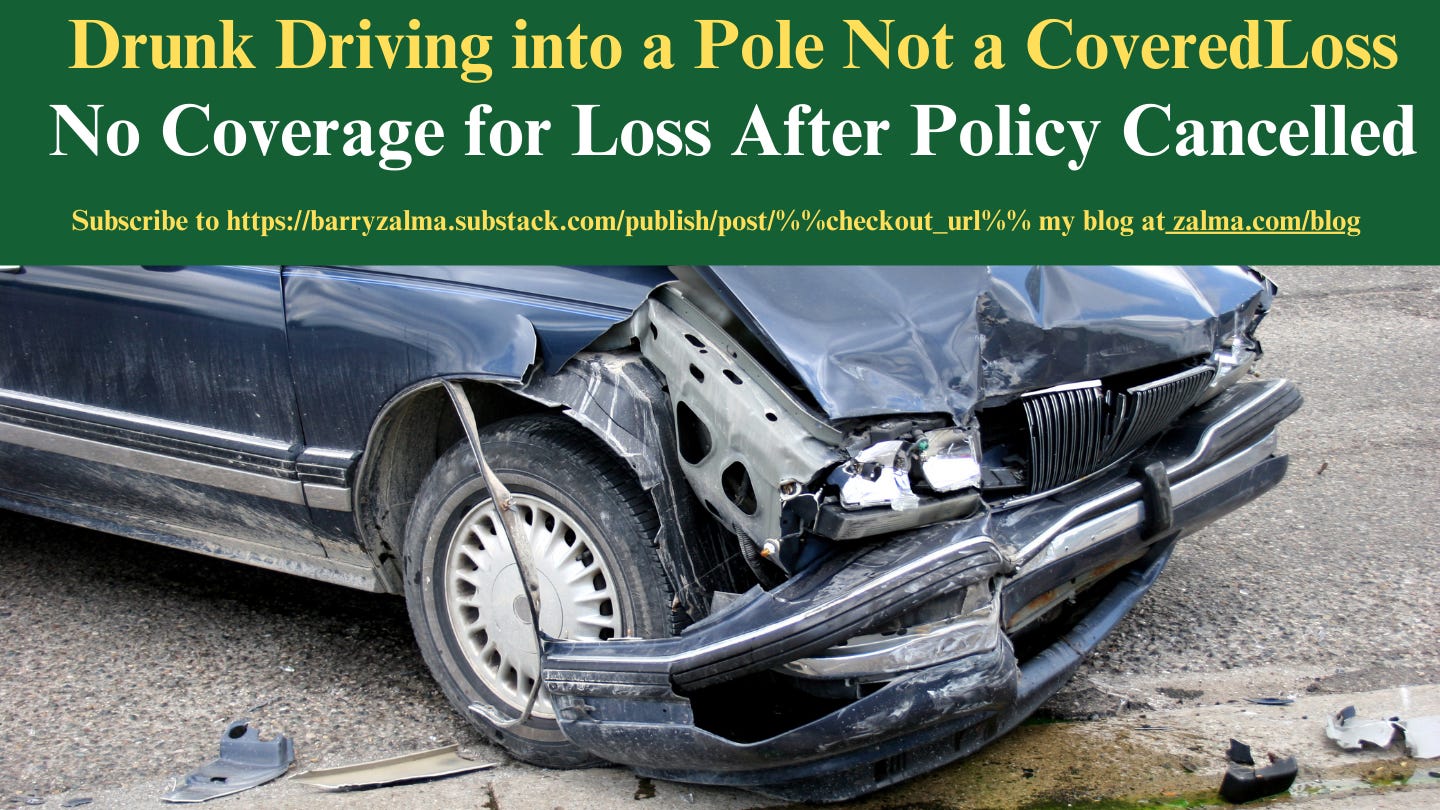Read the full article at https://lnkd.in/gRug68D7 and see the full video at https://lnkd.in/gcCGDTft and at https://lnkd.in/gHej2r9m and at https://zalma.com/blog plus more than 4650 posts.
Post 4685
In an action for declaratory judgment to determine whether the plaintiffs had a duty to defend and indemnify the defendants under certain insurance policies for injuries sustained in a motor vehicle accident, where the trial court granted the plaintiffs’ motion for summary judgment the dispute was moved to the Court of Appeals.
In Liberty Insurance Corporation et al. v. Theodore Johnson et al., No. AC 45933, Court of Appeals of Connecticut (December 5, 2023) the Court of Appeals resolved the dispute.
FACTS
The defendants, Theodore Johnson (Theodore) and Kim Johnson (Kim), appealed from the judgment rendered by the trial court following its granting of a motion for summary judgment filed by the plaintiffs, Liberty Insurance et al and Safeco Insurance Company of Illinois (Safeco). The primary issue is duty to defend a separate action that stemmed from a motor vehicle accident in which the defendants’ son, Aaron Johnson (Aaron), was driving a motor vehicle owned by Theodore when he lost control of the vehicle and struck a telephone pole, causing serious injuries to a passenger in the vehicle, Jordan Torres.
At some point prior to 1:33 a.m. on December 26, 2019, Aaron left the defendants’ house and operated a 1997 Audi A4 2.8 Quattro (Audi) owned by Theodore. Torres was a passenger in the Audi at the time. As Aaron attempted to navigate a curve, he lost control of the Audi, crossed into the westbound lane of traffic, and left the roadway, striking a telephone pole.
Torres sustained personal injuries in the accident and sued a bar in Newington and its backer, as well as Theodore, Kim and Aaron. In the Torres action, Torres alleged that, on December 25, 2019, Aaron, a minor, consumed alcohol at the bar, after which he went to the defendants’ house in Glastonbury, where he was visibly intoxicated and consumed more alcohol.
Following the commencement of the Torres action, the defendants sought coverage from the plaintiffs for Torres’ claims under three policies of insurance:
a homeowners insurance policy issued to the defendants by Liberty Insurance (homeowners policy);
an automobile insurance policy issued to the defendants by Safeco (automobile policy); and
an umbrella insurance policy issued to the defendants by Liberty Mutual (umbrella policy).
Thereafter, the insurer plaintiffs sued seeking a judgment declaring that the plaintiffs are not obligated to defend or indemnify the defendants with respect to Torres’ action.
Specifically, the insurers based that argument on an exclusion in the homeowners policy that excludes coverage for” ‘bodily injury’ or ‘property damage’ . . . arising out of (1) [t]he ownership, … of motor vehicles … operated by or rented or loaned to an ‘insured’ [motor vehicle exclusion] . . . .” Therefore, according to the plaintiffs, because the claims asserted against the defendants in the Torres action arose out of Theodore’s ownership of the Audi, as well as Aaron’s negligent operation of that vehicle, the motor vehicle exclusion barred coverage under the homeowners policy.
With respect to the automobile policy, the plaintiffs asserted that the policy’s coverage for bodily injury for the Audi had been cancelled prior to the date of the accident, at the request of the defendants which, obviously, eliminated the case against the auto insurer.
The trial court granted the plaintiffs’ entire motion for summary judgment.
The Court of Appeal noted that the policy explicitly and unambiguously provided that bodily injury arising out of the use of motor vehicles owned by an insured shall be excluded from policy coverage. On the basis of the record, including comparison of the allegations of the complaint in the Torres action with the language of the homeowners policy and the motor vehicle exclusion contained therein, the Court of Appeal concluded, as a matter of law, that the plaintiffs had no duty to defend the defendants in the Torres action.
Because there was no coverage on the auto policy pursuant to an underlying policy, Liberty Mutual had no duty under the umbrella policy to defend or indemnify the defendants with respect to the Torres action.
Therefore, the trial court properly granted the plaintiffs’ motion for summary judgment and determined, as a matter of law, that the plaintiffs have no duty to defend the defendants in the Torres action.
ZALMA OPINION
Insurance never covers every possible risk of loss. A homeowners policy with an auto exclusion cannot defend or indemnify an insured who injured someone while operating a motor vehicle. In addition, there can never be coverage on an auto policy that was cancelled, and not in effect, at the time of the loss. Although the opinion and arguments were lengthy, the case was simple on the facts of the policy wording and the facts of the accident.
c) 2023 Barry Zalma & ClaimSchool, Inc.
Please tell your friends and colleagues about this blog and the videos and let them subscribe to the blog and the videos.
Subscribe to my substack at https://barryzalma.substack.com/publish/post/107007808
Go to Newsbreak.com https://www.newsbreak.com/@c/1653419?s=01
Follow me on LinkedIn: http://www.linkedin.com/comm/mynetwork/discovery-see-all...
Daily articles are published at https://zalma.substack.com.
Go to the podcast Zalma On Insurance at https://podcasters.spotify.com/pod/show/barry-zalma/support; Go to Barry Zalma videos at Rumble.com at https://rumble.com/c/c-262921; Go to Barry Zalma on YouTube- https://www.youtube.com/channel/UCysiZklEtxZsSF9DfC0Expg; Go to the Insurance Claims Library – http://zalma.com/blog/insurance-claims-library.
Please tell your friends and colleagues about this blog and the videos and let them subscribe to the blog and the videos.
Go to Newsbreak.com https://lnkd.in/g8azKc34
Subscribe to my substack at https://lnkd.in/gcZKhG6g Go to the Insurance Claims Library – https://lnkd.in/gwEYkxD.

















Share this post